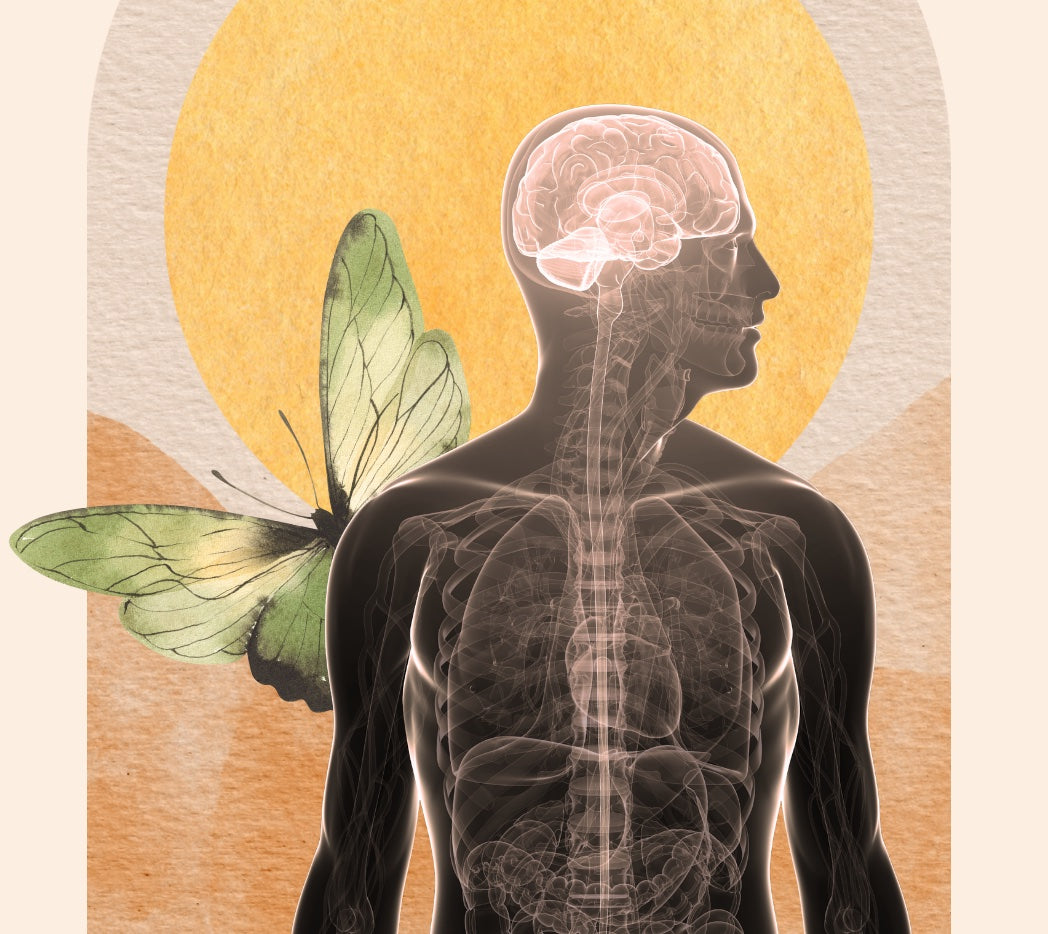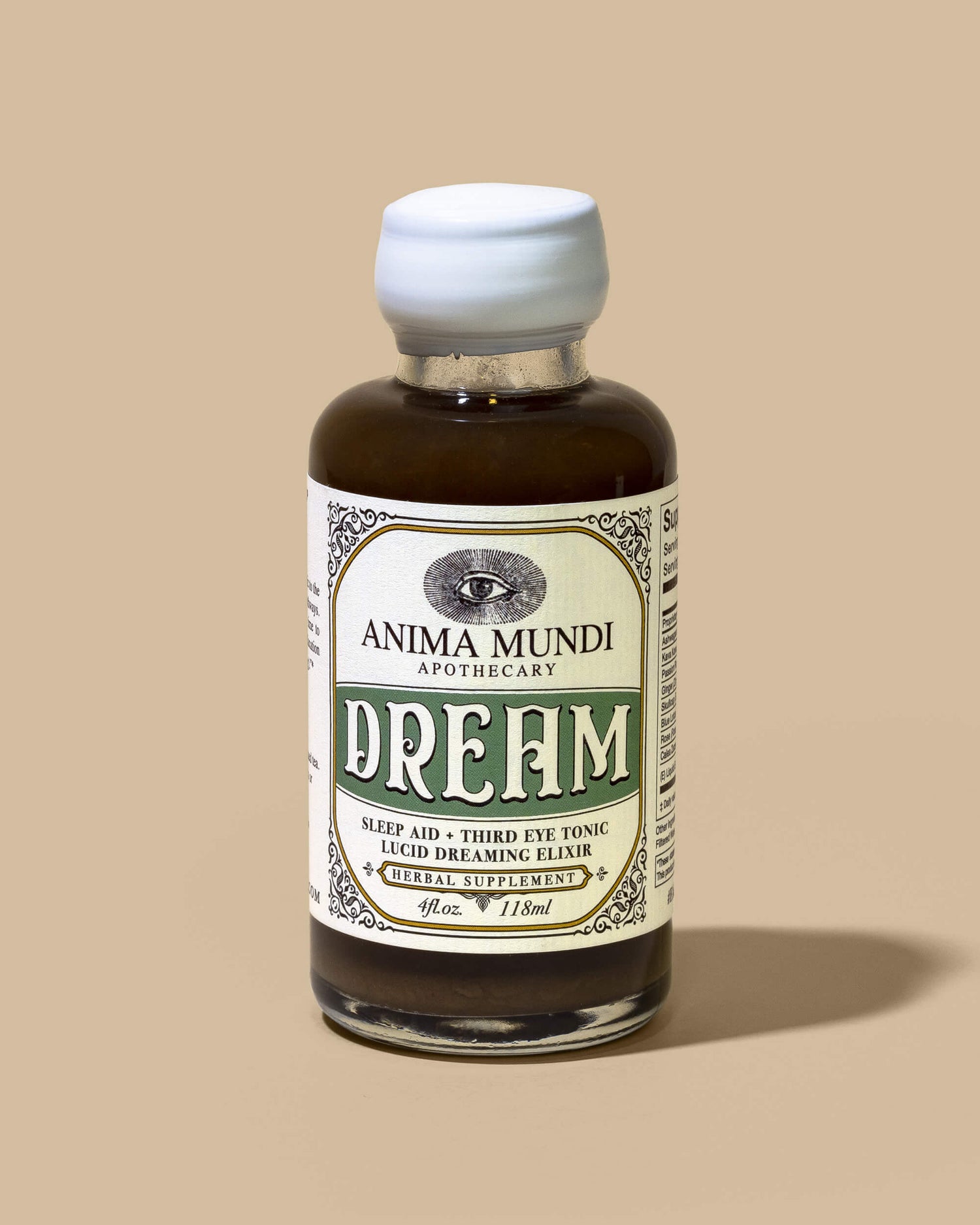Since The Washington Post began publishing its iconic pop culture “In and Out” list on New Year’s Day in 1977, the list has come a long way and inspired many. This year’s edition says soft failure is in and hard launches are out, while taking a more humorous approach overall to the task of predicting what will be trending in 2024. Many argue that in place of rhyme and reason, the “In and Out” lists all over your social media feeds are hyper-personalized outlines of someone’s goals, more of a manifestation of new habits people want to start rather than sharing their resolutions.
According to the New York Times, “instead of making traditional New Year’s resolutions, many [social media] users have started publishing ‘In and Out’ lists that mix predictions of what will and won’t be considered cool in the coming year with aspirations for their 2024 selves.”
While we consider holistic health and herbalism serious business, that doesn’t mean we can’t have a little fun imagining what this year might hold for a topic that resonates deeply with us—hormone health. In the spirit of sharing some knowledge while also easing into 2024 with a bit of lightness, we had so much fun putting together this Hormonal Health “In and Out” List just for you, Anima family.
Keep scrolling to give it a look, and get some ideas for your own in/out list of well-being goals.
We should mention that it’s not really our style to lean into ‘new year, new me’ culture. We’re about year-round healing, whatever that looks like for you, and supporting you with the tools to integrate sacred plant medicines into your daily routines. In 2024, we encourage you to consider focusing on small goals related to new habits you want to create and sustain all year long. Maintaining achievable, repeatable wellness practices will make you feel great and totally “in”.
Why You Should Prioritize Hormone Health
If you’ve been following the rise of hormonal health trends on TikTok and in the worlds of skincare and restaurants, you’ll know that everyone from beauty experts to chefs currently has their eye on this very specific area of well-being. But what exactly are hormones, and what do they do?
Hormones are biochemical messengers. These chemicals are produced by the body, in nature, or synthetically, and they influence the growth and development process of the body by sending messages between cells. Responsible for regulating nearly all of our bodily processes, their impact on every aspect of our daily lives cannot be overstated.
Most of the hormones in our body are produced and released by the endocrine glands through a cyclical process called homeostasis. When the endocrine glands detect imbalances in the body, they then release hormones to other glands and organs to direct them back on the path to homeostasis. There are over 200 hormones (or hormone-like substances) in the body constantly striving to maintain our overall health, and not just during menstrual cycles or puberty. This common misperception and overemphasis on the hormones for certain groups of individuals at specific times in their lives has long persisted, ignoring the crucial role of hormone health for all.
When hormones are regulated and in balance, our overall health is at its peak vitality. When they’re imbalanced, we may experience drastic consequences. You’ve no doubt heard of estrogen, which is actually a group of chemicals that maintain moisture where we need it, produce curvy feminine shapes, keep our bones strong, and grow women’s uterine lining so that they experience monthly menstrual cycles. Progesterone helps regulate menstrual cycles and stabilizes pregnancy. And testosterone, often thought of as a ‘male’ hormone, has important actions in women, too.
To get the bigger picture, here are five ways hormones can influence our health on a daily basis:
1. Energy + Mood
Thyroid hormones regulate energy, weight, metabolism, healthy hair and regular menstrual cycles, and help sharpen brain function.
Insulin regulates blood sugar levels, making glucose available for cells to use as energy.
Serotonin and dopamine regulate emotions, promoting pleasurable and positive feelings, which is why they are often called the ‘happy hormones’.
2. Sleep
Melatonin regulates the body’s natural sleep-wake cycle, signaling the body when it’s time to sleep.
3. Hunger + Digestion
Ghrelin stimulates the appetite by signaling the brain with hunger cues when the stomach is empty.
Leptin tells us when we are full.
Insulin also helps regulate how we use proteins, fats, and carbohydrates.
Somatropin, a.k.a. the ‘growth hormone’, regulates metabolism, blood sugar, and body structure.
Thyroxine regulates metabolism, digestion, and numerous other functions for optimal heart, muscle, brain, and bone health.
4. Stress
Cortisol regulates the immune system and our fight-flight-freeze response, making nutrients more available in response to environmental stressors by suppressing non-essential bodily processes.
Adrenaline also helps to prepare the body for fight or flight, as a response to danger or stress.
5. Sex + Love
Oxytocin, a.k.a. the ‘love hormone’, facilitates childbirth, stimulates lactation for breastfeeding, promotes parent-child bonding, and influences our love and sense of bonding in us throughout our lives through feelings of trust, empathy, compassion, etc.
Testosterone (in men) regulates sperm production, sex drive, bone mass, fat and muscle functions.
Oestrogen (in women) regulates the menstrual cycle, fertility, bone strength, and brain, heart, and muscle function, among other key developmental activities.
What To Do When Hormones Aren’t Functioning Properly
In just the list above, it’s easy to see how crucial the hormones are for our survival and for our endocrine system’s numerous processes. But, what happens when we have abnormally high or low levels of hormones, disrupting our delicate internal balance and causing our health to falter? This is often called an endocrine disorder, and the root causes range from genetics to injuries, infections, and tumors, among other issues. However, not all hormone imbalances are caused by endocrine disorders and there are quite a lot of healthy habits that can help keep your hormones in check.
Focusing on your gut health with a nutritious diet of gut-supportive herbs and foods, for example, is a great way to help hormones reproduce, function, and free up their signaling pathways to send the key messages they need to get to the other parts of the body. Healthy fats, protein and fiber are also hormone balancing powerhouses, while sugar, processed foods and alcohol disrupt their balance.
Whether you are making a commitment to diet, exercise, sleep, de-stressing, abstaining from endocrine-disrupting chemicals (EDCs) where possible, or a combination of these in 2024, we hope this “In and Out” list will serve as the starting point for some TLC for your hormone health this year.
For even more in-depth information about hormone health, visit the blog to keep reading how EDCs are impacting your hormones, a phase-by-phase guide and rituals to support menstrual cycles, womb-loving herbs, and herbs for the sacred masculine that boost prostate health, vitality and virility.
Or, click here for our quick guide to some of the top herbs for hormonal balance at a glance.
OUT FOR 2024
- Late nights
- Too much coffee
- Excessive screen time
- Fad diets
- To-go cups
- Laxatives
- Excessive alcohol consumption
- Seed oils, too much take out
- Inflammatory foods
- Stressing the small things
IN FOR 2024
- Sleep hygiene
- Eating breakfast
- Daily doses of sunshine
- Eating balanced meals
- Bring your own cup
- Bitter herbs, probiotics and prebiotics
- Mocktails with elixirs
- Cooking at home
- Anti-inflammatory foods
- Essential oils + meditating






















